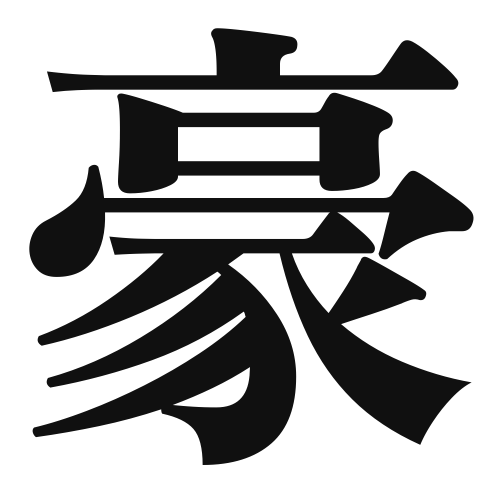1. Overview of Meaning
The kanji “豪” (gō) generally means “luxurious,” “magnificent,” or “powerful.” It conveys a sense of grandeur and strength, often associated with wealth and opulence.
2. Formation and Radicals
The kanji “豪” is a phonetic-ideographic character (形声文字), which means it combines both meaning and sound. The left part, “亻” (the radical for “person”), suggests a connection to human qualities, while the right part, “豪” (gō), relates to the idea of being strong or grand.
The radical of “豪” is “亻,” which indicates that it is related to people or human actions.
3. Examples of Usage
Common words and phrases that include “豪” are:
- 豪華 (ごうか, gōka) – luxurious
- 豪族 (ごうぞく, gōzoku) – powerful clan
Example sentence in daily conversation:
「彼の家はとても豪華です。」(かれのいえはとてもごうかです。) – “His house is very luxurious.”
4. Synonyms and Antonyms
Similar kanji with related meanings include:
- 華 (はな, hana) – meaning “flower” or “splendor,” which emphasizes beauty rather than strength.
Antonyms include:
- 貧 (ひん, hin) – meaning “poor,” which represents the opposite of wealth and luxury.
5. Cultural and Historical Background
The kanji “豪” has significant ties to Japanese culture, often used in contexts that celebrate wealth and power, such as in historical narratives about samurai clans.
Proverbs and idiomatic expressions that include “豪” might reflect the values of strength and grandeur, emphasizing the importance of these qualities in Japanese society.
